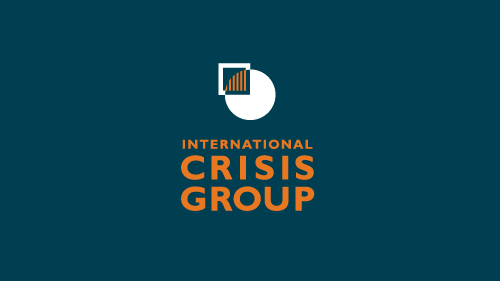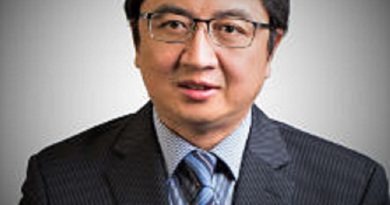Campus Spotlight: Lindsay Smetanka’s Crisis Group Internship
(Editor’s note: Lindsay Smetanka (’18) is a senior Diplomacy & International Relations major with a minor in Arabic. She interned with International Crisis Group– an independent advocacy organization that monitors and reports on deadly conflicts throughout the world. Crisis Group briefs and provides recommendations to local, national and global decision makers to help mitigate conflict during the fall 2017 semester, and has extended her internship to this spring.)
Last summer [2017], I was not seeking out an internship with Crisis Group, in fact, I had not heard of their work until spotting the job posting on Seton Hall Career Center’s NAVIGATOR. However, I ended up in the perfect organization for my senior-level internship. My official title is “Government and Foundation Relations (GFR) Intern,” but a title that more accurately defines what I do day-to-day would be “Development Intern.”
I came into this internship with previous experience as: an office intern for my congressman, a project advancement intern for the Westmoreland Museum of American Art, and a grant writer for the Latrobe Community Revitalization Program. I had the ability to get this internship as an undergraduate student because I had this previous experience working in government and in a non-profit development setting.
In particular, my internship at the Westmoreland Museum of American Art most prepared me for my position with Crisis Group, as it exposed me to impact evaluation, studies indicating the success rate of a particular program. During this internship, I developed an impact evaluation and logic model packet for museum program directors to complete before, during, and after their respective projects.
Understanding the impact that a non-profit project or program has g is important to understand for internal evaluations and donor retention. This was something that has immensely helped me with my work at Crisis Group.
A normal day in the office consists of: updating spreadsheets to track Crisis Group outputs and communication for donor reporting, researching donor prospects, proofreading grant proposals and reports, and working on my own creative projects for the benefit of the GFR team. I also alternate taking notes for the GFR team’s bi-weekly Skype meetings with the intern in the Brussels office.
One of my favorite projects that I have spearheaded is research on the impact monitoring and evaluation strategies of Crisis Group’s peers, like the Center for Strategic and International Studies and Saferworld. Although tracking the impacts of advocacy non-profits is difficult, it is important for these organizations to have a conscious method of monitoring and evaluating their work.
At Crisis Group, I have developed a spreadsheet that produces a graph that visually displays which published outputs correspond to each foundation donor. My hope is that this spreadsheet will develop into understanding where donors are specifically funding each output.
My internship with Crisis Group has motivated me to pursue a career in program impact monitoring and evaluation. In a few years, I plan to get my master’s in Public Administration with a focus in policy analysis and evaluation. In the meantime, I have started applying to entry-level jobs that would help me build my skill set in this field. I am happy to say that my supervisor at Crisis Group has offered me an extension to my six-month internship and I have decided to stay until graduation.
As we know, one of the benefits of majoring in Diplomacy and International Relations is that there are so many diverse opportunities available in this field. But in the same regard, it is challenging to find a way into this field. While it may be overwhelming to watch my friends who pursued one-tracked majors go straight into their jobs after graduation with ease, I have watched my peers in Diplomacy do amazing things. They are able to speak at international conferences, start non-profits, and publish scholarly articles.
In this field, it is easy to become discouraged because of the high competition and the money—to be honest, usually isn’t ideal at first—but with passion and hard work, I do think that every “Diplo” can achieve what they all sought out to do: make the world a better place.



